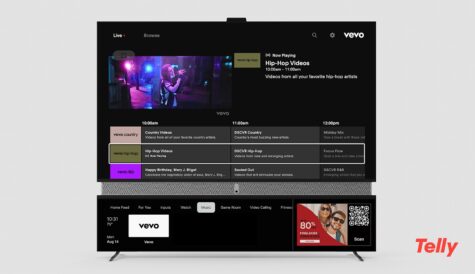New data will give much deeper insights, change the content industry
The TV and advertising industries will start to move away from “archaic” demographic definitions, with new data due to give much deeper insights into character, according to Shawn DuBravac.
Speaking on a panel session at IBC yesterday, DuBravac, who is chief economist and senior director of research at the Consumer Electronics Association, said that in the future, data will be able to map emotional responses and drive “a greater seamless experience.”
“Right now, when you sell advertising against a show, you’re basing it upon the popularity of the show, the demographics of the show – you’re using basic data,” said DuBravac.
“What if you start to tie it in to other pieces of data relevant to the show? Age, gender, income, education – they’re so archaic. I think we’re going to move away from all these basic demographics and we’re going to just define people based upon their type of characteristics.”
Speaking on a panel about ‘disruptive storytelling’ and wearble technology, DuBravac said that in a digital world, the basic data that defines content experiences can be “fully changed”.
“Commercials will start to map to a show based upon that emotional response and where it fits in. Rather than saying ‘I want this 30 seconds’ you might say ‘that commercial fits best immediately following this piece, so we’re going to break that content here and drop the commercial in,” he said .
“Everything is on the table when it comes to this, because it allows us to redefine the story-telling.
Also speaking on the same panel, Gawain Morrison, the CEO and co-founder of Sensum – an emotion-based software solutions company focused on the market research and marketing industries – said that emotional mapping could fit well in the broadcasting space.
While he claimed that “marketing and brands is where the money is”, Morrison said that measuring and co-opting an emotional response from the audience could add a compelling angle to performance-based shows like the X Factor, game shows and current afairs programmes.
Jeorg Tewes, CEO of Avegant, a firm that specialises in near-eye video display headsets, said on the panel that while 3D technology suffered from a lack of compelling content, virtual realiity will start to take off in the coming years.
Though Tewes cautioned it would not happen overnight, he said that in the next three to five years, virtual reality will take off and people “will actually consume and get that content.”
He likened the transition that will take place in the coming years to the switch from SD to HD and said “I think we’re really now getting to new types of experiences… I think the whole broadcasting production industry will be hoping to drive that to the next level.”
Avegant is currently in the process of refining its Glyph Alpha headset prototype, and is due to launch this wearable display to consumers this autumn.




